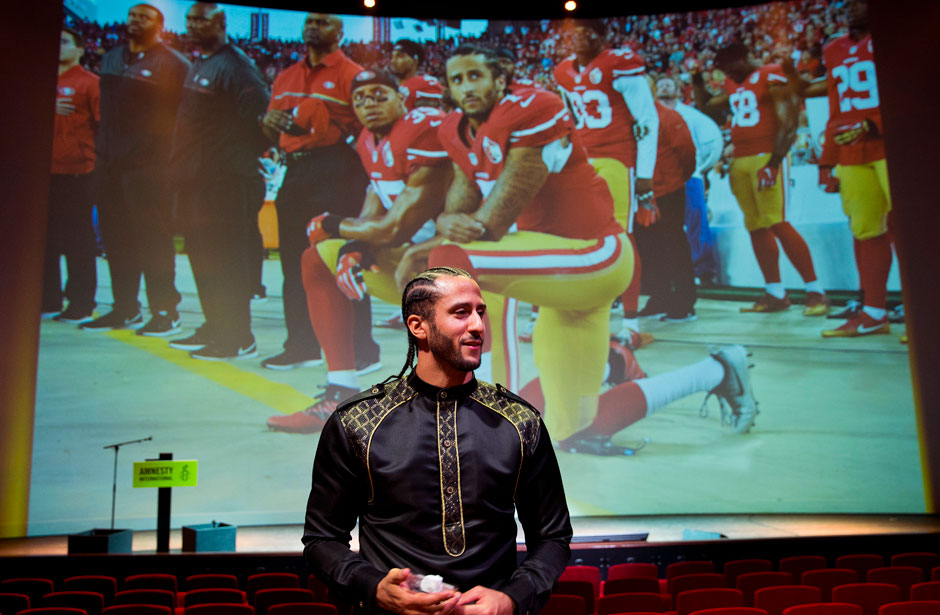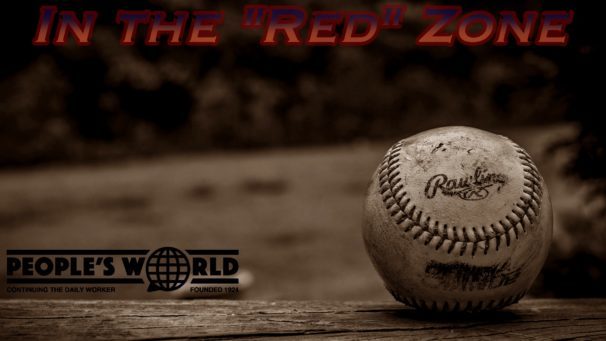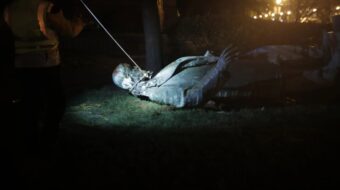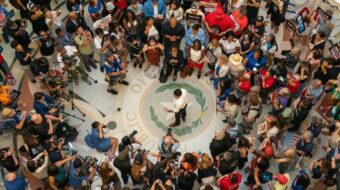
In the first of many knockout blows to the NFL, et al. (Donald J. Trump), an arbitrator late Thursday ruled in favor of Colin Kaepernick and will advance his collusion grievance against the league to trial. The hearing is expected to begin later this year.
The decision was made by Stephen B. Burbank, a University of Pennsylvania law professor who is the NFL-NFLPA arbitrator assigned to resolve contract disputes between the league and players union.
The NFL had requested a summary judgment by Burbank, which asked for an immediate dismal of the case. That request was rejected as Kaepernick had given sufficient evidence that the league and owners had colluded to keep him off the field.
The ruling was announced by Mark Geragos, Kaepernick’s attorney, on Twitter:
“On August 28, 2018, the System Arbitrator denied the NFL’s request that he dismiss Colin Kaepernick’s complaint alleging that his inability to secure a player contract since becoming a free agent in March 2017 has been due to an agreement among team owners and the NFL that violates Article 17, Section 1 of the collective bargaining agreement between the NFL and the NFLPA (union),” read Burbank’s written statement dated Thursday, released by Geragos.
Burbank will preside over the trial hearing.
Kaepernick’s grievance, filed last year, argues the owners violated the NFL-NFLPA collective bargaining agreement by conspiring to keep him off teams—blacklisted—for his on-field protest during the national anthem.
The CBA strictly prohibits the league and teams from colluding on decisions about whether a player should be signed.
Article 17 of the NFL CBA: “No club, its employees or agents shall enter into any agreement or implied, with the NFL or any other club, its employees or agents to restrict or limit individual club decision-making… In order to prove collusion, Kaepernick will need to show a pattern of communication between at least two NFL teams and the league, and that the communication led to his current unemployment. Collusion claims like this hinge on documentary evidence, so Kaepernick will have to produce documents, emails, text messages, or recordings, showing an explicit or implicit agreement among teams to keep him out of the NFL.”
Kaepernick’s defense team conducted depositions with a number of owners, team officials, and the league (Trump came up a few times in the depositions). The defense attorneys can now recall them as witnesses to testify before Burbank.
NFL Commissioner Roger Goodell has said teams made their own individual decisions about Kaepernick based on his on-field ability.
Kaepernick has not played in the NFL since the 2016 season, when he began taking a knee during the playing of the national anthem to protest police brutality and racism, as a member of the San Francisco 49ers.
Kaepernick opted out his contract after being the starting quarterback for Super Bowl XLVII. The 49ers have said they would have released Kaepernick, rather than keeping him under the existing terms of his contract, if he hadn’t opted out of the deal.
Players have continued the protest during the national anthem, and many have cited Kaepernick’s unemployment as a major issue while the league and union negotiate for a new anthem policy.
The NFL’s revised anthem policy, which included discipline and fines, was put on hold as part of an agreement with the NFLPA.
The NFL-NFLPA agreement says the federal rules of evidence apply to a collusion hearing and the “complaining party shall bear the burden of demonstrating by a clear preponderance of the evidence that (1) the challenged conduct was or is in violation of Section 1 of this Article and (2) caused any economic injury to such player(s).”
This puts the burden of proof on Kaepernick and his legal team. The NFLPA is not involved, as Kaepernick filed the grievance as an individual, though the NFLPA does have the option of signing on as a party, if it chooses.
Burbank is empowered to award Kaepernick compensatory damages based on the economic harm suffered and any additional damages that would be a multiple of the compensatory damages, under the CBA, if owners and league were found guilty of colluding to keep Kaepernick out of the NFL.
Collusions grievances against leagues are tough to prove. There is never an easy paper trail to follow or documented instructions when it comes to showing teams or the league worked together against player(s).
Well…there is one exception: Major League Baseball.
Back in the ’80s, the MLB was caught colluding against ball players after the union showed team owners acted together to keep player salaries down. The cases, Collusion I, II, and II, came with a settlement for the MLBPA worth $280 million.
Will sports union history side with Kaepernick?
I sure as hell hope so. And so should you.










